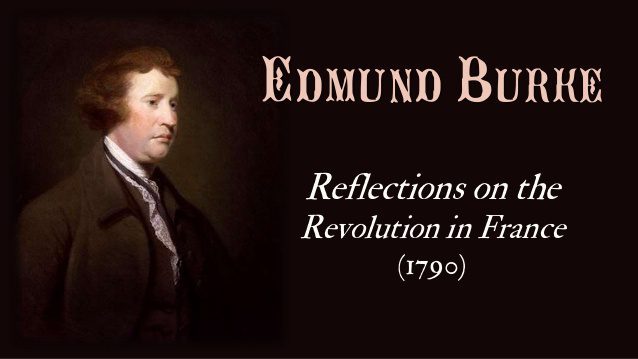Timbro reading group on Edmund Burke
Timbro 4th Reading Group on Classical Liberal Literature, Dec 2018 – Jan 2019: Reflections on the Revolution in France

Edmund Burke has often been read as a primary figure in the conservative tradition, principally for his condemnation of the revolution in France. But on the British stage he promoted numerous liberal reforms, and quite consistently. An interest for the principles of rule of law, the value of virtues as a basis for society and the gradual development of societies diminish his liberal character no more than they do Adam Smith’s. But Burke was a politician, orator, and publicist, with a different role to play. Hayek showed a deep interest in Burke, and recent writings by Richard Bourke and Yuval Levin challenge the ”conservative, not liberal” designation that had been given to Burke.
In Burke’s reflections on the revolutionary developments in France, many of his ideas on social life and political theory were expressed with great passion.

We will read Edmund Burke’s Reflections on the Revolution in France.
Here is an excerpt from the book description:
“Edmund Burke’s Reflections on the Revolution in France is considered by many to be a masterpiece of political analysis and a compelling rationale against the French Revolution. Originally written as a letter in response to a young Parisian and later expanded upon and published in book format in January 1790, the work has greatly influenced conservative and classic liberal intellectuals and stands as a powerful argument against violent revolutions, lawlessness, and unrest.
Prior to 1790, Burke was a well-known member of the British House of Commons and a vocal supporter of the American Revolution. His condemnation of the French Revolution shocked many of his peers and supporters. Burke viewed the French Revolution as a violent and chaotic war without any guiding ideology or respect for the rule of law and feared it would lead to a situation that was both dangerous and corrupt. Many of Burke’s predictions came true as the Revolution devolved into bloodshed and anarchy with the Reign of Terror beginning in 1793 and then leading to the eventual military dictatorship of Napoleon Bonaparte. Burke’s work stands as an enduring statement in support of tradition, hereditary power, property rights, duty, and the monarchy.”
Copies of the book will be available at Timbro, Kungsgatan 60. Contact me by email, and I will make sure that a copy of the book is available for pickup, or to be sent by mail. The schedule and assigned readings are as follows:
1st meeting: December 11, 4.30 – 6 PM
Pages 4-71
2nd meeting: December 19, 4.30 – 6 PM
Pages 71-143
3rd meeting: January 8, 4.30 – 6 PM
Pages 143-210
The seminars are held at Timbro, Kungsgatan 60, 2nd floor.
Participants are also encouraged to read this article, discussing similarities between Burke and Hayek. Richard Whatmore’s reflection on The Curse of Burke is also recommended as complementary reading.
Questions related to the Reading Group can be addressed to bjorn.hasselgren@timbro.se, +46-70-7623316.
Daniel Klein is also available by email dklein@gmu.edu
Welcome to the 2018/19 Reading Group!